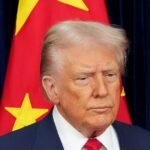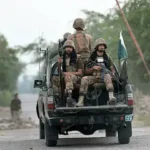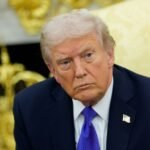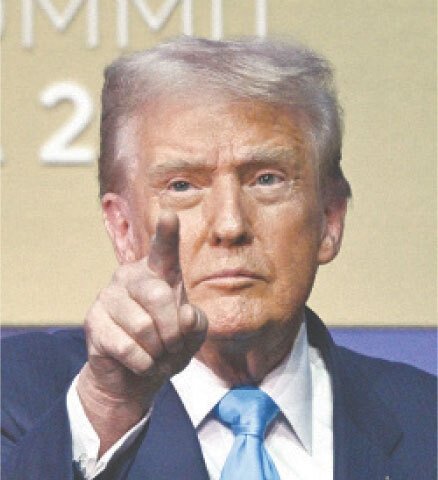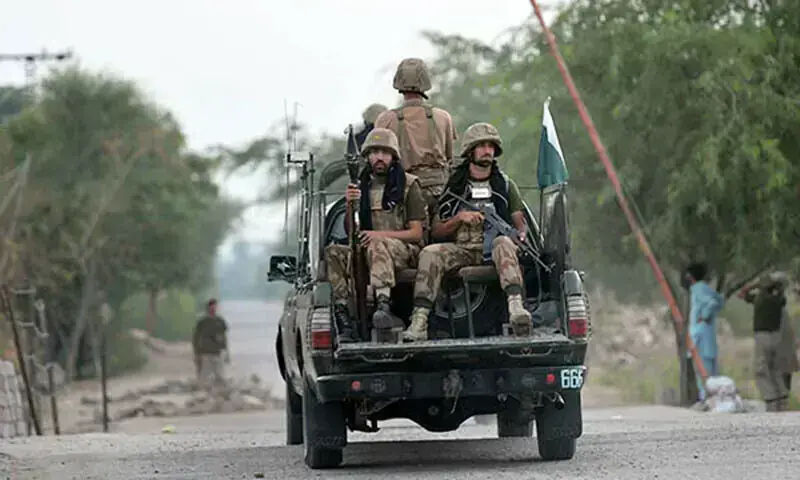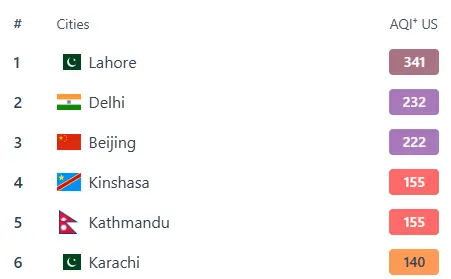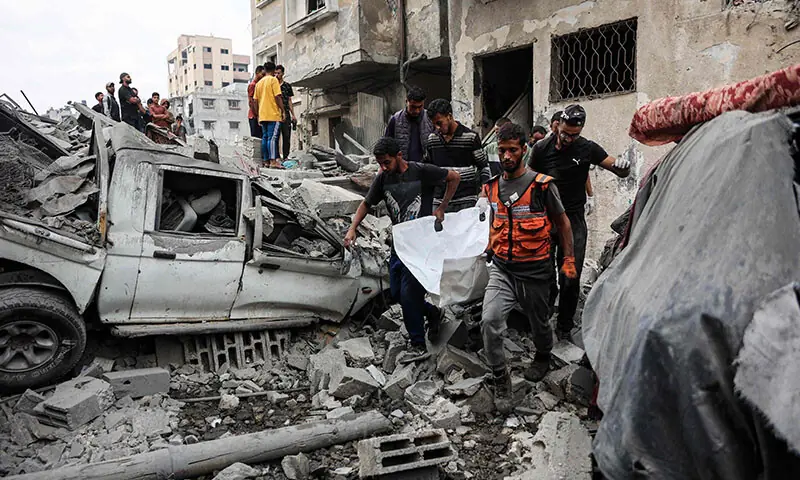WASHINGTON: President Donald Trump has cited at least “25 times” claims that between five and seven “beautiful new” planes were shot down during the May conflict between Pakistan and India, according to Indian media monitoring.
The actual number of losses remains disputed, but Trump’s comments have helped validate Pakistan’s version of events and strengthened its diplomatic position.
Speaking at a regional meeting in South Korea on Wednesday, Trump again took credit for averting a full-scale war by threatening both India and Pakistan with 250 percent tariffs, the highest he has ever mentioned for any country. “If you look at India and Pakistan… they were on it,” he said. “Seven planes were shot down. They were really starting to fly.”
Trump also praised Army Chief of Staff Field Marshal Asim Munir, calling him a “great fighter.”
Claims ‘new and beautiful’ planes were shot down during conflict
“I am signing a trade agreement with India and I have great respect and love, as you know, for Prime Minister Narendra Modi. We have a great relationship,” he said.
“Likewise, the prime minister of Pakistan is a great guy, and the quarterback… they have a quarterback. You know why he’s a quarterback? He’s a great fighter. He really is. He’s a great guy, too.”
A day earlier, addressing business leaders in Japan, he used nearly identical language, describing how “two major nuclear powers” were heading toward war before he intervened. New Delhi continues to deny that any of its planes were lost and rejects Trump’s claim of mediation, insisting the ceasefire was mutually agreed upon.
Trump’s version again contradicts India’s position. He said he personally called Prime Minister Narendra Modi and Pakistan’s leaders to warn them that Washington would halt trade and impose “massive tariffs” if the fighting continued.
Analysts see a broader shift in Washington’s tone. The Wilson Center’s Michael Kugelman noted that Secretary of State Marco Rubio said, “We see an opportunity to expand our strategic relationship with Pakistan.”
Kugelman noted that while business interests drive White House involvement, “the administration’s messaging has generally gone further.” Rubio, he added, even described Pakistan as “an ally,” a rare term in recent US policy.
The knock-on effects of Trump’s statements are evident in the diplomatic sphere. US and Indian media reported that Prime Minister Modi decided to virtually join the Asean Summit in Kuala Lumpur (October 26-28), apparently to avoid being publicly upstaged if Trump praised Pakistan in his presence. India’s opposition Congress Party called the move “a diplomatic retreat,” and Rahul Gandhi alleged that Modi had skipped “another global stage for fear of embarrassment.”
Clashes between Pakistan and Afghanistan
Trump has also spoken about the clashes between Pakistan and Afghanistan, calling them “easy for me to solve” and praising Pakistan’s leadership as “a great people.” His self-proclaimed “war solver” image projects American influence while keeping Pakistan at the center of regional diplomacy.
However, despite this apparent tilt towards Islamabad, Trump in Seoul signaled that a trade deal with India is imminent.
Trump’s rhetoric may have given international weight to Pakistan’s account of the air war, but his economic priorities force him to seek a deal with India.
Published in Dawn, October 30, 2025
